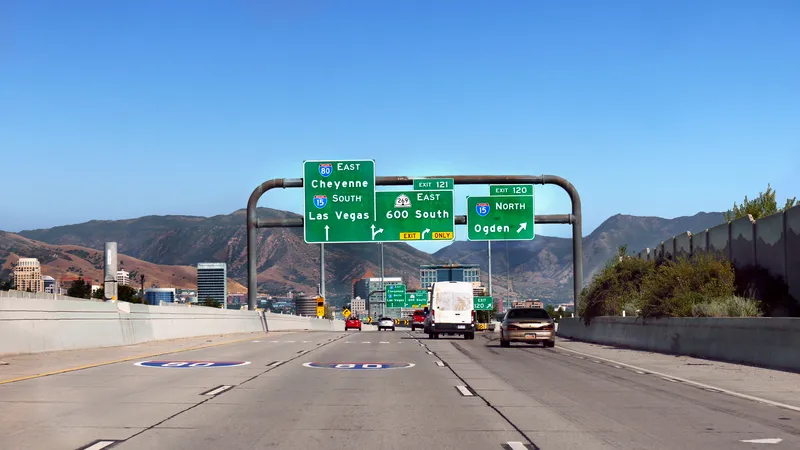According to the RAC’s 2013 Report on Motoring, the condition of the UK’s motorways and local roads, characterised by the now year-round problem of potholes, ranks as a top concern for motorists. While the cost of driving is understandably still the number one concern for nearly half (46 per cent) of Britain’s motorists, two in five (41 per cent) say maintenance of local roads and motorways is their top spending priority. In addition, 84 per cent of motorists believe their local roads are deteriorating and
June 13, 2013
Read time: 3 mins
According to the RAC’s 2013 Report on Motoring, the condition of the UK’s motorways and local roads, characterised by the now year-round problem of potholes, ranks as a top concern for motorists.
While the cost of driving is understandably still the number one concern for nearly half (46 per cent) of Britain’s motorists, two in five (41 per cent) say maintenance of local roads and motorways is their top spending priority. In addition, 84 per cent of motorists believe their local roads are deteriorating and three-quarters think the same about motorways and other major roads.
However, the question asked by most motorists is: why isn’t more of the money collected in motoring taxation ring-fenced for maintaining roads? Four out of five (78 per cent) think the money they pay to government through motoring taxes is not properly invested in local roads.
The RAC believes that without this investment the government will be responsible for overseeing a massive decline in the state of our highways which negatively affects consumers and businesses alike, stalls the economy and stores up a huge ‘problem’ bill for future tax payers.
With revenue from fuel duty falling year on year as people drive fewer miles in more fuel efficient vehicles, the RAC report shows there is a real need for a new way of taxing motorists.
In addition, a third of motorists surveyed said they are prepared to pay tolls for motorway driving or city centre congestion charges if the cost of fuel and car tax was significantly reduced – perhaps signalling a new model for taxing the motorist.
Unsurprisingly, motorists said that tax levied on fuel and Vehicle Excise Duty (car tax) should represent a smaller share of what they pay. More than 22 million drivers would prefer to pay less fuel tax and half would like to pay lower levels of car tax.
RAC technical director David Bizley said: “Our Report on Motoring shows that Britain’s motorists – and roads – have been left battle-scarred after a further 12 months of bearing the burden of extreme financial conditions.
“Despite this, motorists are willing to pay their taxes, but want the balance of levies to reflect how they live and how the use their vehicle. The report suggests that motorists would prefer to see a higher share of motoring taxation levied on those things over which they have greater control – such as whether or not they choose to drive into city centres or use a particular motorway.
“What’s needed is an in-depth review of the overall motoring taxation model and for a reasonable percentage of money raised from drivers to be ring-fenced for roads.”
While the cost of driving is understandably still the number one concern for nearly half (46 per cent) of Britain’s motorists, two in five (41 per cent) say maintenance of local roads and motorways is their top spending priority. In addition, 84 per cent of motorists believe their local roads are deteriorating and three-quarters think the same about motorways and other major roads.
However, the question asked by most motorists is: why isn’t more of the money collected in motoring taxation ring-fenced for maintaining roads? Four out of five (78 per cent) think the money they pay to government through motoring taxes is not properly invested in local roads.
The RAC believes that without this investment the government will be responsible for overseeing a massive decline in the state of our highways which negatively affects consumers and businesses alike, stalls the economy and stores up a huge ‘problem’ bill for future tax payers.
With revenue from fuel duty falling year on year as people drive fewer miles in more fuel efficient vehicles, the RAC report shows there is a real need for a new way of taxing motorists.
In addition, a third of motorists surveyed said they are prepared to pay tolls for motorway driving or city centre congestion charges if the cost of fuel and car tax was significantly reduced – perhaps signalling a new model for taxing the motorist.
Unsurprisingly, motorists said that tax levied on fuel and Vehicle Excise Duty (car tax) should represent a smaller share of what they pay. More than 22 million drivers would prefer to pay less fuel tax and half would like to pay lower levels of car tax.
RAC technical director David Bizley said: “Our Report on Motoring shows that Britain’s motorists – and roads – have been left battle-scarred after a further 12 months of bearing the burden of extreme financial conditions.
“Despite this, motorists are willing to pay their taxes, but want the balance of levies to reflect how they live and how the use their vehicle. The report suggests that motorists would prefer to see a higher share of motoring taxation levied on those things over which they have greater control – such as whether or not they choose to drive into city centres or use a particular motorway.
“What’s needed is an in-depth review of the overall motoring taxation model and for a reasonable percentage of money raised from drivers to be ring-fenced for roads.”










